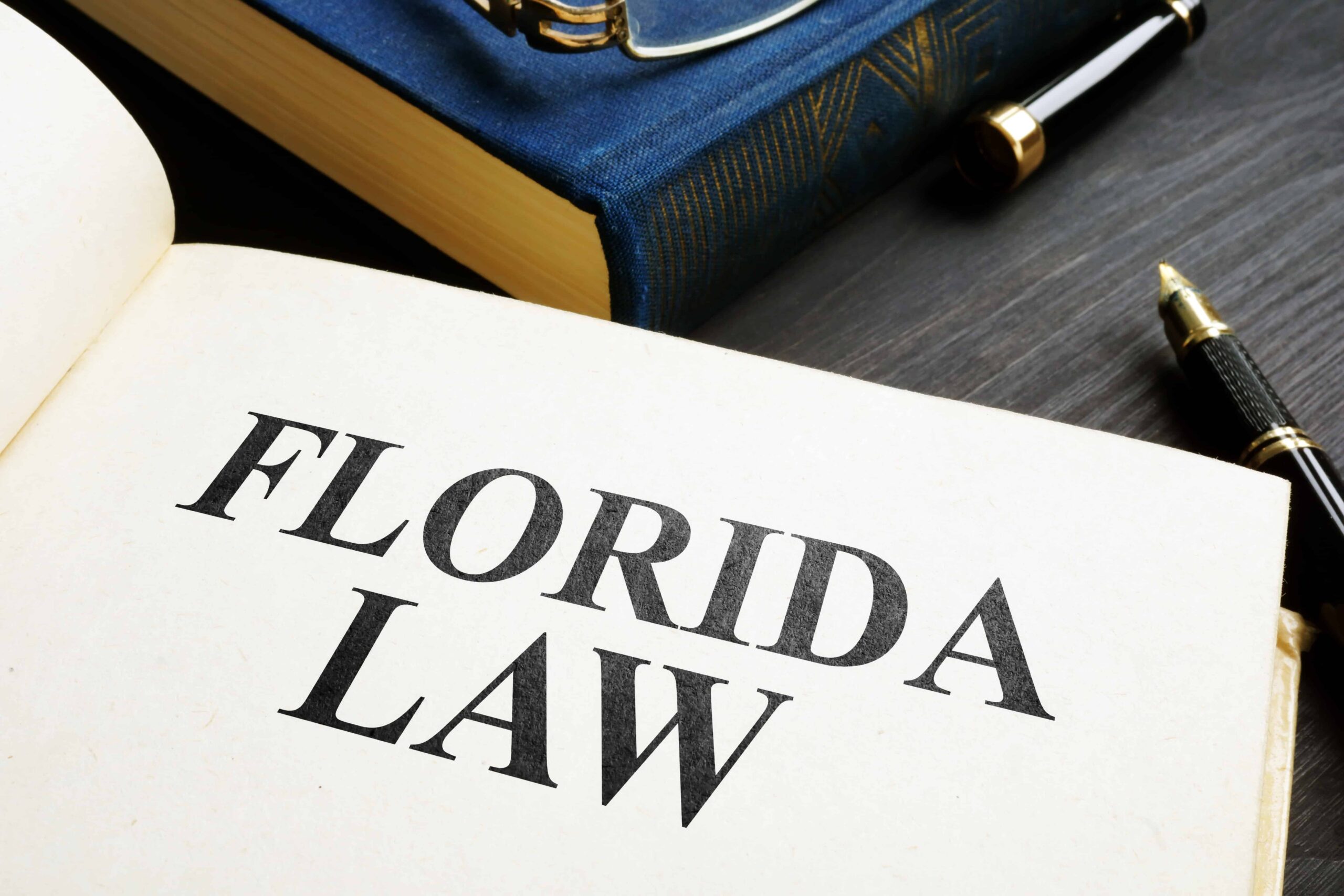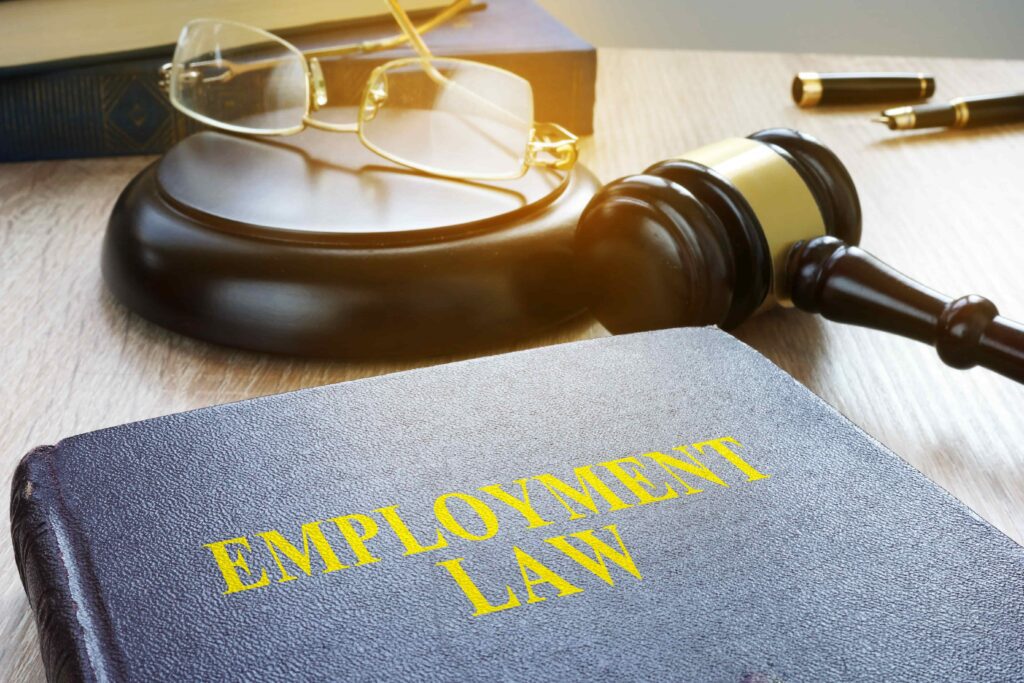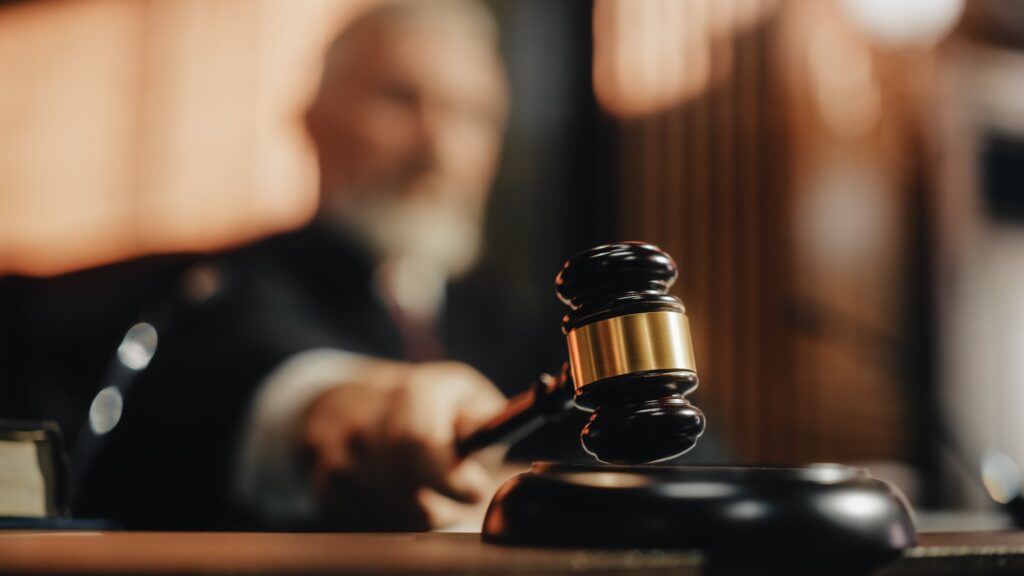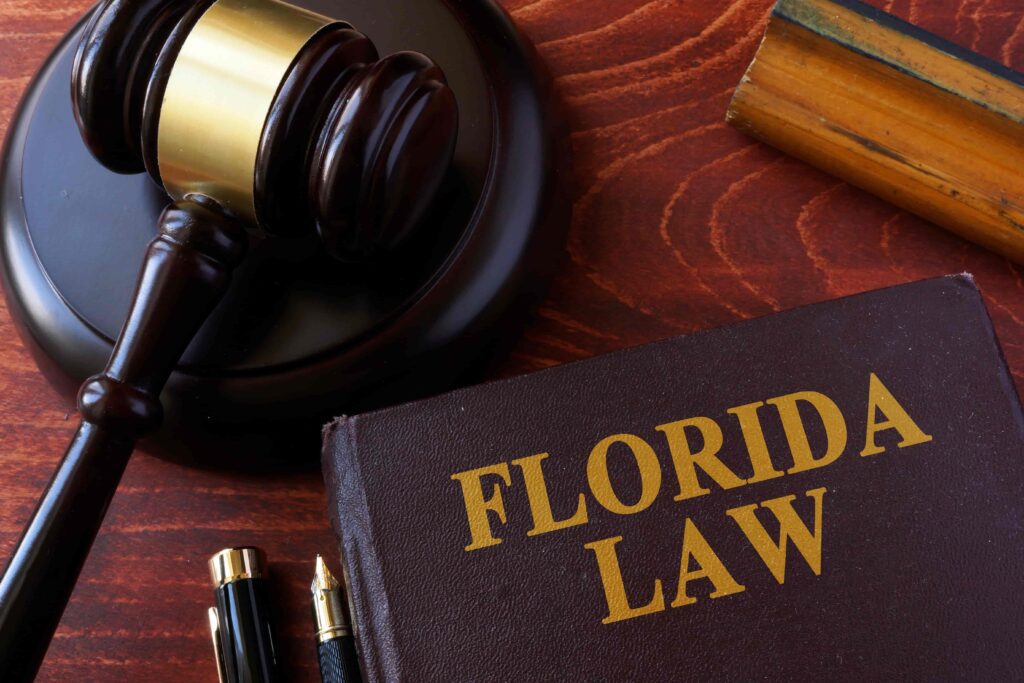
Florida employees who suspect illegal activity at work now face a tougher road to protection after the First District Court of Appeal’s November 2024 decision in Gessner v. Southern Company. The ruling creates a higher bar for whistleblower claims by requiring employees to prove their employer committed an actual violation of law, not just that they reasonably believed one occurred. With Florida’s appellate courts now split on this critical issue, private-sector workers must navigate conflicting standards that could leave them vulnerable to retaliation even when they report suspected wrongdoing in good faith.
Key Takeaways
- The First District Court now requires employees to prove an actual violation of law occurred, aligning with the Second District’s stricter standard rather than the Fourth District’s “reasonable belief” approach.
- Florida employees face different burdens of proof depending on which appellate district hears their case, creating uncertainty about whistleblower protections statewide.
- The certified conflict between appellate courts likely requires Florida Supreme Court intervention to establish a uniform standard for private whistleblower claims.
- Employees must now gather stronger evidence before reporting violations, as good-faith beliefs about illegal conduct may not protect them from retaliation.
- The ruling highlights the importance of documenting actual legal violations rather than relying on reasonable suspicions when considering whistleblower actions.
Understanding the Gessner Decision and Its Impact
The First District Court of Appeal’s ruling in Gessner v. Southern Company fundamentally shifts how Florida courts evaluate whistleblower protections. Clint Shannon Gessner worked at Gulf Power Company for nearly a decade, receiving positive performance evaluations throughout his employment. When he objected to practices he believed violated state or federal laws, his employer terminated him.
Gessner argued he only needed to show a “good faith, objectively reasonable belief” that his employer’s actions were illegal. This standard, established by the Fourth District in Aery v. Wallace Lincoln-Mercury, had provided broader protection for employees who reported suspected violations. The trial court rejected this approach, instead following the Second District’s stricter interpretation from Kearns v. Farmer Acquisition Co.
The First District upheld the trial court’s decision, explicitly stating that employees must establish they objected to, or refused to participate in, an activity, policy, or practice of the employer that is an actual violation of a law, rule, or regulation. In other words, the court said employees must prove their employer really broke the law, not just that it looked suspicious. This interpretation relies on the statute’s exact wording rather than its broader purpose.
The Conflicting Standards Across Florida Districts

Florida employees now face different protections based on geography. Workers in Miami-Dade and Broward counties (Fourth District) enjoy broader protections, while those in Jacksonville and Tallahassee (First District) face stricter requirements. Tampa-area employees (Second District) also must meet the higher standard.
The Fourth District’s Aery approach protects employees with reasonable beliefs. Workers don’t need law degrees or detective skills—if a reasonable person would suspect illegal activity, they’re protected from retaliation.
The First and Second Districts demand proof of actual violations. Employees must identify specific broken laws before safely reporting concerns. This turns workers into investigators and legal analysts without proper tools or training.
Federal courts add another layer of confusion. Some follow the employee-friendly Aery standard, while others predict Florida’s Supreme Court would choose the stricter approach. Similar cases can have completely different outcomes based solely on which courthouse doors they enter.
Practical Challenges for Employees Under the New Standard
The actual violation requirement creates major obstacles for employees. Many notice troubling behavior but lack the documents or legal knowledge needed to prove illegality.
Imagine an accountant who sees irregular entries suggesting tax fraud. Under the reasonable belief standard, reporting would be protected. Under the stricter standard, they would need to prove tax laws were actually broken, which is difficult without insider records.
Consider a warehouse manager observing unsafe practices. The conditions look dangerous, but without OSHA expertise, they cannot know if regulations were truly violated. Reporting such concerns could leave them unprotected if no specific law was broken.
A healthcare billing specialist could face similar challenges. Coding patterns might suggest Medicare fraud, yet proving it would require mastery of complex rules and access to restricted patient records.
These hypotheticals show how the stricter standard discourages good-faith reporting, allowing potential wrongdoing to go unchallenged.
Legal Analysis: Why Courts Disagree

The appellate court split comes from different ways of reading the same law. The First and Second Districts focus on exact wording. They emphasize that the statute protects employees who object to practices that violate a law, not practices they believe might violate the law.
The Fourth District considers the law’s purpose and real-world effects. This court recognized that requiring actual violations could silence legitimate whistleblowers. Employees rarely have complete information about legal compliance. The Aery court noted other whistleblower laws explicitly protect “reasonable beliefs,” suggesting lawmakers know how to provide such protection when intended.
Federal courts have made things more confusing. Some follow Aery, while others guess the Florida Supreme Court would choose the stricter standard. This creates unpredictable results for similar cases.
The First District formally recognized this conflict with the Fourth District. This certification opens the door for Supreme Court review—though the high court must still decide whether to take the case.
Building Stronger Whistleblower Cases in the Current Environment
Given the uncertainty and higher burden in some districts, employees must take extra precautions when considering whistleblower actions. Strategic preparation becomes essential for protection against retaliation.
Document everything related to the suspected violation. Keep copies of relevant policies, emails, reports, or other evidence suggesting illegal conduct. Note dates, participants, and specific actions that appear to violate the law. Create a detailed timeline showing how you discovered the potential violation and what information supports your concerns.
Research applicable laws, rules, and regulations before reporting. While employees shouldn’t need law degrees to report wrongdoing, understanding which specific statutes might be violated strengthens your position. Government websites often explain regulations in plain language. Industry associations sometimes provide compliance guides that clarify legal requirements.
Consider consulting an Whistleblower Attorney before making internal reports. An employment lawyer can evaluate whether your evidence suggests actual violations and advise on the safest reporting approach. They can also help preserve evidence and document your protected activity properly. Early legal guidance often proves invaluable if retaliation occurs later.
What This Means for Different Industries

The stricter standard creates particular difficulties in heavily regulated fields where the laws themselves are complex and the proof often lies beyond the reach of ordinary employees. Each industry faces unique barriers when trying to show actual violations.
Healthcare Industry Challenges
Healthcare employees often see troubling practices but lack access to the full records needed to confirm illegality. For example:
- Medicare billing requires understanding thousands of codes and regulations
- HIPAA violations need proof of specific privacy breaches, not just poor practices
- Medical necessity standards vary by diagnosis and insurance carrier
- Lower-level employees rarely have access to the complete patient records needed as proof
These obstacles make it nearly impossible for many frontline healthcare workers to prove violations without specialized knowledge or documentation.
Financial Services Obstacles
Financial services employees encounter similar barriers. Laws in this sector are highly technical, and key information is often kept at the executive level. Common challenges include:
- Securities laws contain intricate trading rules and disclosure requirements
- Banking regulations span federal and state levels with overlapping standards
- Proving fraud requires transaction data that is often restricted to executives
- Compliance officers may see red flags without having access to smoking-gun evidence
Without full access to sensitive financial data, employees may notice warning signs but remain unable to prove that their employers broke the law.
Environmental and Safety Concerns
Workplace safety and environmental compliance also illustrate the problem. Employees frequently see unsafe or harmful practices, but proving they violate specific regulations requires technical expertise. Examples include:
- OSHA regulations fill volumes with technical specifications
- EPA rules vary by substance, quantity, and disposal method
- Workers might spot dangerous conditions without knowing exact regulatory citations
- Proving violations may require air quality tests or chemical analysis
These requirements make it unrealistic for average workers to gather the evidence necessary to satisfy the stricter legal standard.
The Path Forward: Need for Supreme Court Clarity
The certified conflict between Florida’s appellate districts creates an untenable situation that requires resolution. Employees and employers need consistent, predictable standards for whistleblower protection statewide.
The Florida Supreme Court must weigh competing policy considerations. The actual violation standard provides employers with greater certainty and reduces frivolous claims. However, it also discourages legitimate whistleblowing by requiring employees to prove legal violations before knowing if they’ll be protected from retaliation.
The reasonable belief standard better serves the statute’s purpose of encouraging reports of illegal conduct. Whistleblowers often lack complete information but play crucial roles in uncovering fraud, safety violations, and other wrongdoing. Protecting good faith reports, even if ultimately mistaken, encourages employees to speak up when they suspect problems.
Other states have addressed similar issues through legislative amendments. Some explicitly include “reasonable belief” language in their whistleblower statutes, and others provide graduated protections based on the type of violation reported. Florida’s legislature could clarify its intent if the Supreme Court doesn’t resolve the conflict.
Protecting Yourself While the Law Remains Unsettled

Until Florida’s Supreme Court or legislature provides clarity, employees must navigate carefully when considering whistleblower actions. Understanding your rights and taking protective measures becomes even more critical given the conflicting standards.
Know your district’s standard before proceeding. Palm Beach County employees fall under the Fourth District, where reasonable belief still protects you. Jacksonville and Pensacola workers face the First District’s actual violation requirement. Tampa Bay area employees must meet the Second District’s strict standard. Consider where any lawsuit would be filed when evaluating your protections.
Exhaust internal reporting channels when possible. Many employers have compliance hotlines or ethics procedures for reporting concerns. Using these channels creates documentation of your protected activity while potentially resolving issues without external reports. Keep copies of all internal reports and any responses received.
Build support networks before taking action. Identify potential witnesses to the violations or to any retaliation you might face. Maintain positive relationships with colleagues who could provide testimony if needed. Document your strong work performance to counter any pretextual reasons for adverse actions.
FAQ About Florida’s Conflicting Whistleblower Standards
What documentation should I keep if I suspect violations at work?
Create a detailed file including dates and times of suspicious activities, names of people involved, specific actions that seem illegal, and any policies or procedures being violated. Save emails, memos, photos, or recordings (where legal) related to the potential violations. Keep performance reviews showing your good standing before reporting. Store copies outside your workplace in case you lose access. Document any changes in how you’re treated after raising concerns.
How can I research whether something is actually illegal before reporting?
Start with government websites that explain regulations in your industry. OSHA.gov covers workplace safety, while Medicare.gov explains healthcare billing rules. Industry associations often publish compliance guides. Consider scheduling a consultation with an employment attorney who can evaluate whether your evidence shows actual legal violations.
What should I do if I’m retaliated against after making a good-faith report?
Document the retaliation immediately—write down what happened, when, and who was involved. File a complaint with your HR department to create a paper trail. Continue performing your job excellently to avoid giving legitimate reasons for discipline. Consult an employer retaliation attorney quickly, as you may have only 2 years to file a lawsuit. Keep working if possible to minimize lost wages and show that the retaliation forced you out.
Which Florida counties fall under which appellate districts?
The First District covers North Florida, including Tallahassee, Jacksonville, and Pensacola. The Second District includes Tampa Bay, Fort Myers, and Lakeland. The Third District covers Miami-Dade and Monroe counties. The Fourth District includes Palm Beach, Broward, Martin, St. Lucie, Indian River, and Okeechobee counties. The Fifth District spans Central Florida, including Orlando, Daytona Beach, and Ocala. Your work location typically determines which standard applies.
What if I live or work in Florida’s Third or Fifth District—how do the whistleblower rules apply to me?
The Third District (covering Miami-Dade and Monroe counties) and the Fifth District (covering Central Florida, including Orlando and Daytona Beach) have not yet ruled on whether employees need to prove an actual violation or just have a reasonable belief. This means the law remains unsettled in those areas. Courts may look to other district rulings for guidance until the Florida Supreme Court resolves the conflict. Employees in these regions should document thoroughly and prepare for either standard to apply.
Can I report anonymously and still get whistleblower protection?
Anonymous reports to government agencies can trigger investigations, but you generally can’t claim whistleblower protection without identifying yourself. Florida law protects employees who make reports “under oath, in writing“—requiring your name. Consider making an anonymous tip first to start an investigation, then formally identifying yourself if retaliation occurs. Some employers have anonymous hotlines, but protection requires showing that you made the report.
Moving Forward Despite Uncertainty
The First District’s Gessner decision creates significant challenges for Florida employees. Requiring proof of actual violations burdens workers who lack legal training or complete information. With courts split on this fundamental issue, your protection depends on geography alone.
This split makes the law confusing and discourages workers from reporting suspected wrongdoing. When employees must become legal experts before safely reporting concerns, many stay silent. The reasonable belief standard better balances protection with employer interests, allowing good faith reports while requiring objective justification.
Until the Supreme Court or legislature provides clarity, proceed cautiously with whistleblower actions. Document thoroughly, understand applicable laws, and consider early legal consultation. Your courage in reporting illegal activities should be protected, not subjected to conflicting court interpretations.
If you’re facing potential whistleblower situations or have experienced retaliation, don’t navigate these complex standards alone. Brenton Legal’s employment attorneys understand Florida’s evolving whistleblower landscape and can evaluate your protections under current standards. We’ll help determine which requirements apply and pursue the full compensation available under the law. Contact Brenton Legal at 954-639-4644 for a confidential consultation about your whistleblower rights.

